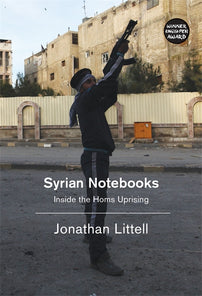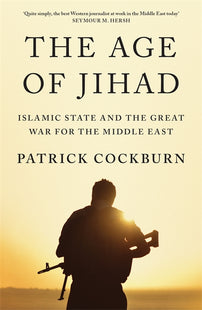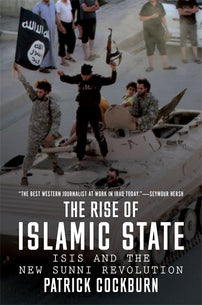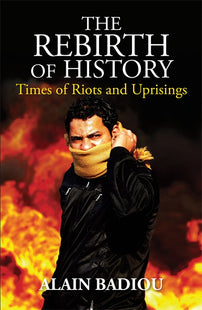The Left in Syria: From Democratic National Change to Devastation
Syrian writer Thaer A. Deeb chronicles the miscalculations that have prevented the Syrian left from playing a decisive role in the uprising that began in 2011.

The Syrian uprising of 2011 was one of the aftershocks of the earthquake that first shook Tunisia, then Egypt, Libya, and Yemen, and on to Syria — recalling the Revolutions of 1848 which swept across Europe from country to country. Nevertheless, Syria is crucially distinct from these other Arab countries by a number of factors. First, there is the absence of any serious manifestation of civil society, including parties, unions, associations, clubs, independent press, independent judiciary, etc., due to the monopoly of power and prolonged repression. Second, the almost-complete fusion of the army with the head of authority. Third, the regime’s success, through decades of tight security, in suppressing the people and crippling the opposition. Fourth, the regional and international geopolitical situation of Syria and its close association with the Palestinian cause. Fifth, the rigid structure of the regime, which is incapable of tolerating any dissent.
At first, actors from many political and intellectual trends, as well as various social groups, participated in the uprising. In its earliest months, it was prominently marked by peaceful demonstrations which were able, in spite of the brutal repression, to create what is known in the sociology of revolution as “a revolutionary situation,” in which the governed reject the old means of rule, and it becomes impossible for the rulers to maintain the status quo by the same means as before. The relationship of subjugation is destabilized on the ground. The contradictions on the political level evolve into a political crisis, which the regime tries to solve not only by repression, but also by acknowledging the political nature of the situation and calling for dialogue or negotiation, meanwhile replacing governments, laws, the constitution, and the parliament in a way which could set the stage for these changes to gradually turn, under the pressure of the street, from merely formal, pseudo-reforms — like a willow bowing, intact, before the storm — into a decisive moment of transformation.
Peaceful demonstrations had just succeeded in making the regime take the first steps when brutal repression, external armament and financing, especially from the US, Turkey, and the Gulf states, together with the dominance of political Islam and their “liberalized” ex-leftist allies, led to the overwhelming militarization and the escalation of the uprising to a devastating war. Local issues overlapped with regional and international ones and made room for takfiri terrorist groups such as Al-Nusra, ISIS and their kin, to take the lead and leave wider segments of the Syrian people behind — with their just and long-standing claims for liberties, fundamental rights, and the rule of law. By no means was the uprising a revolution anymore, neither in the political and social nature of its leading groups, nor in the goals it pursued — the two aspects by which revolutions are generally identified.
The Syrian left did not exclude itself from the movement in spite of the largely popular and non-factional character of its first peaceful stages. Nor did the structural weakness of the left, after long decades of repression and detention, stop it. Nor, finally, did its decisive splintering, after the collapse of the Soviet Union and the Second Gulf War, into competing tendencies — a Marxist democratic national trend which would manifest itself after the uprising as the National Coordination Body for Democratic Change; a new-liberal trend which would manifest itself as the Syrian National Council and later as the National Coalition for Syrian Revolutionary and Opposition Forces; and a traditional communist trend which is associated with the regime through the National Progressive Front; along with a large number of independent leftists of various opinions — prevent leftist participation. Despite its weakness, the left was,present in the movement, and it imposed a moral weight on the political Islamist trends and their supporters and financers, which was evident in many forms: chief among them the succession of three “liberalized” ex-leftists on the presidency of the National Council (Burhan Ghalioun, Abdul-Basit Sida, and George Sabra).
A wager on a gradual escalation of Syrians’ struggles, and on the renunciation of arms, external intervention, and sectarianism was at the heart of the strategy pursued by the Coordination Body and its affiliated independents, who represented a project for democratic national change. This had always been the greatest theoretical and activist contribution made and enhanced by the democratic national leftists over the decades from the late sixties to the present. This project emphasizes the necessity of radical change capable of moving the country from despotism into a state of law and political freedom as an indispensable condition for transcending social and economic underdevelopment and establishing progress and justice, and possesses a familiarity with the country’s structure, regime, and geopolitical situation, as well as an understanding of the importance of the national question as an integral part of the social and democratic struggle.
This vision was represented in the movement through the argument that salvation from tyranny could be achieved by a movement that was national and democratic. Given the balance of power, as well as the nature of the regime, this salvation must come through an escalating process that combines peaceful civil resistance and political action, spontaneity and consciousness, the enthusiasm of young people and the experience of the elders, and unfolds in consecutive rounds, which are always open to failure or retreat not only because of the strength of the opponent, but because we need to bypass the dreadful paths Syria was already thrown onto by others, blindly and fiercely.
For that reason, advocates of this project were not impressed by some of the myths which became widespread at the time of the Arab upheavals, like “spontaneity,” “youth,” and the "detriments of politics and organization." They discerned that some of those in the opposition were not concerned with freedom and dignity so much as they were invested in altering Syria’s regional and international alliances. They also perceived the necessity of unifying the opposition to advocate for democracy and nationalism. This took form in what they called “Cairo Agreement” in the late 2011, partially formulated by the prominent leftist leader Abdul-Aziz Al-Khaier and signed by by Haitham Manna on behalf of the Coordination Body and Burhan Ghalioun, on behalf of the National Council, who soon withdrew his signature under the pressure of the Council’s financers and sponsors.
However, due to the kidnapping of two of its prominent leaders, Al-Khaier and Rajaa Al-Nasser, and the shift of many of its members to the side they considered victorious, the Coordination Body forwent its national and democratic orientation — evident in its slavish participation in the High Negotiations Committee with the Coalition and former officials in the regime, in addition to many armed groups. This extremely weakened this tendency’s ability to represent the national and democratic orientation.
The other left was represented by a number of ex-leftist figures and forces, which shifted to liberalism and/or populism, and joined the National Council and its successor, the Coalition, alongside those supporting political Islam (mainly represented by the Muslim Brotherhood). Two sides of the same coin, this left is almost the reverse image of the regime left: whoever is the enemy of the regime in a specific period becomes the subject of admiration of this left at the same moment. This left even went so far as to praise the occupying, or ready-to-occupy, American armies, as was plainly set out in the “Colonial Zero” thesis, which the former leftist leader Riad Al-Turk (the historical leader of the Syrian Communist Party-Political Bureau, which operated later under the name Syrian Democratic People’s Party) had come out with in the 1990s. The thesis states that colonization can bring Syria back to the zero-point under which despotism had placed us, and that defeating “external colonization” is easier than defeating the “internal colonization” represented by despotic regimes.
This left did not put any programs or projections before the spontaneous movement of 2011 that could account for the balance of powers and potential risks ahead. Instead, it embraced the worst sorts of populism, playing and preying on people’s pain and suffering. At that time, it seemed as if they saw the situation as a one-of-a-kind chance at which they leapt, throwing caution to the wind. Yet, once seizing the opportunity became less possible, this left favored not only counter-violence, but also the rending of the army, the flag, and the state, and even external intervention as well as sectarianism. At the same time, as repression and the dominance of terrorist takfiri movements (of which “ISIS” and “Al-Nusra” are outstanding examples) continued to escalate, this Left unveiled an obscurantist, absurd, and horrible face that did not hesitate to justify terrorism or to regard takfiri-held lands as “liberated” — without daring to enter them. “We, in the National Council, never made any announcement, explicitly nor implicitly, against Al-Nusra Front or any other group. We have strongly defended it in our meeting with the US more than it would defend itself,” stated George Sabra, a member of People’s Party, in the National Council meetings of August 20–21, 2013. Yassin Al-Haj Saleh, a former member of the same party who has come to be well-known as “the wise man of the revolution,” also raved in an interview with the Future Lebanese newspaper on October 6, 2013: “I am still holding to my earliest stance: I am against the adoption of the American stance towards Al-Nusra, or opening a front against it… the conflict with Al-Nusra is minor and can be solved politically, but the conflict with the regime is existential… the revolution is fighting a hard battle against the regime, whereas Al-Nusra is not opening a front against any in the revolution.” The raving here is not restricted, of course, to Al-Haj Saleh’s stance towards Al-Nusra, nor to the bitter fruits of his minor and existential conflicts that we are tasting today. Rather, it is manifest in his conception of fronts, and the assumption by him and his like that it was possible, in the moment and context concerned, to have a front of their own.
Yet, their unique achievement has been developing the “Colonial Zero” thesis into an actual alliance with the predators of the colonial world, especially the US, England, France, and the janitors of their oil in the Gulf, and even calling for their military intervention and launching harsh attacks on the country — which they identify wholly with the regime. Whereas words like “liberty,” “democracy,” and “development” appeared in the original version of the “Colonial Zero” thesis, albeit as an obvious fig leaf, the new version revealed the naked truth that they had no aspirations beyond vengeance — a truth which was apparent in their inability to distinguish between attacking an airport or a research center and attacking the regime; and also in their lack of any political discourse other than the plea to Trump, and even to Israel, for attacks.
In the beginning of 2017, after 6 years of devastation and bloodshed, many of this trend’s proponents released a document entitled A Call to Our Syrian People: For Freedom, Dignity, Citizenship, and Democracy, A Critical Viewpoint to Reposition the Course of the Syrian Revolution. Here they confessed to immense mistakes and delusions, including their wagers that “There would be some sort of international intervention” and a “reliance on the foreigners and dependence on their agendas”; “The delusion of counting on Al-Nusra Front and its likes”; “the delusion of liberated areas”; and “the delusion of betting on ideological and sectarian discourses and entities.” These, in addition to other miscalculations, were “proven to be the creation of wishful and fatalist mentalities that had nothing to do with politics and balance of powers and showed no sensitivity towards people’s sufferings and sacrifices or to the costs our people dearly paid.” The ink of this document, which was written in the context of the US and the broader West’s neglect of the Syrian situation, had barely had enough time to dry when its writers returned to hailing not only Trump’s attacks on Al-Shayrat Airbase, and then the Scientific Research Center, but Israel’s repeated attacks too.
Today, Syria floats on tides of blood, amid great destruction that has seen hundreds of thousands killed and millions displaced. The country is in no sense advancing towards democratic transformation, a path toward which the left was supposed to clear, reclaiming the idea of democracy from the hands of imperialist predators by combining national, economic and social demands, and intertwining national independence with the struggle for freedom and democracy.
Thaer A. Deeb is a Syrian writer, translator, doctor and former political prisoner for his affiliation with the Communist Labor Party in Syria. He has written weekly articles about the Syrian situation for As-Safir and Al-Ittihad Lebanese newspapers.
[book-strip index="1" style="display"]




